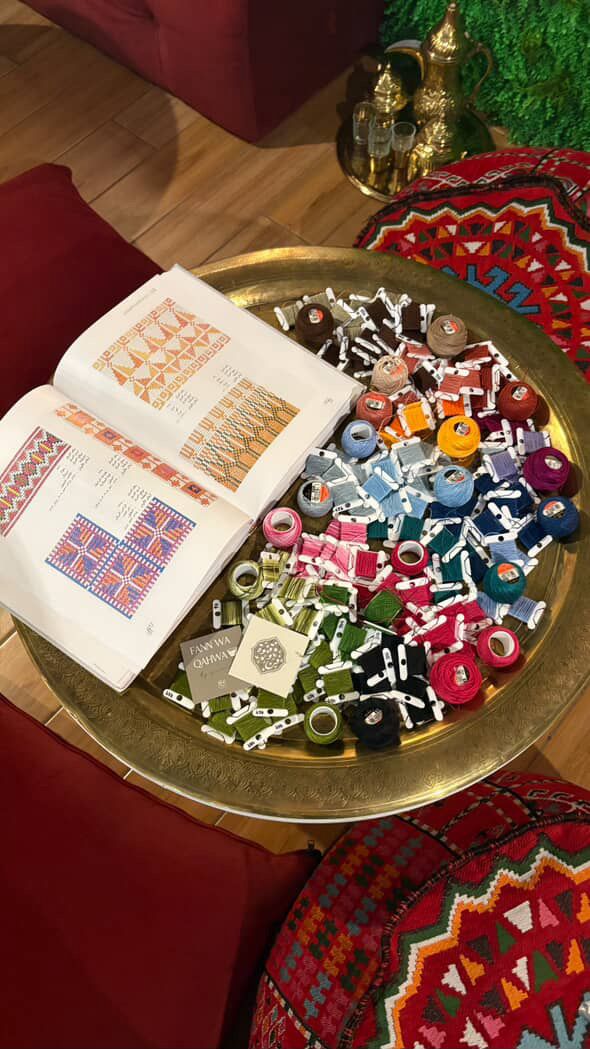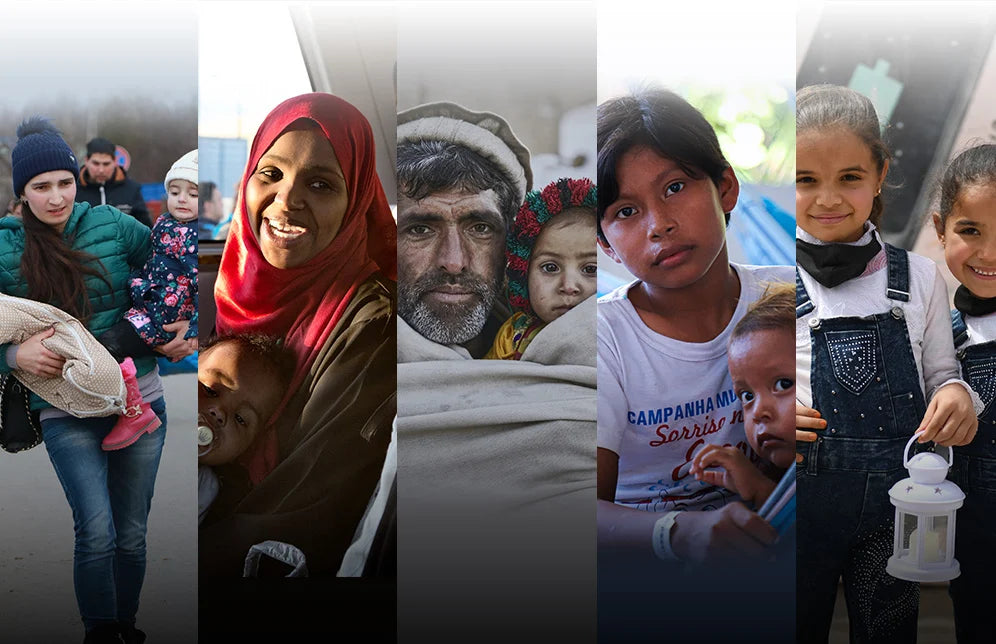Mothers of Resilience, Today and Everyday in Palestine and Beyond
Here at Sitti, mothers are not just part of our organization—they are the soul of Sitti. Every product we sell, every hope we carry, every story we tell—it all begins with them.

Although celebrations during an active genocide are not just contradictions, but instead brutal reminders of the world’s indifference.
When one part of the world cheers for graduating students, Gaza’s school year ends early—not with diplomas, but with mass graves for children. When one part of the world marks holidays like Eid and Easter with feasts, Gazan parents continue digging through rubble for scraps between bombings.
So as we celebrate Mother’s Day in the West with flower bouquets and dinner reservations, I can’t stop thinking about the child whispering into the dirt, begging for one last kiss from their buried mother. Or the mother cradling a lifeless body—an image that we have all seen too many variations of—A mother's love now a weapon against the world’s silence.
Solidarity is not a feeling. It is a refusal to celebrate while others are erased.

Many people believe that those who stand in solidarity with the oppressed have "politicized" everything. What these critics fail to understand is that our most sacred celebrations were born from resistance against oppressive systems.
The founding of Mother's Day itself was an act of radical anti-war protest. In 1870, Julia Ward Howe issued her Mother's Day Proclamation calling for mothers to unite against the ravages of war following the American Civil War. Her words still pierce through time: "Our children shall not be taken from us to unlearn all that we have taught them of charity, mercy and patience. We women of one country will be too tender of those of another country, to allow our sons to be trained to injure theirs."
The resistance rooted in Mother’s Day continued to prevail, through organizations like National Bail Out; A non-profit organization that works to free incarcerated Black mothers on Mother’s Day, who are often jailed for poverty-related charges. This movement began in 2010, and has carried on till this present day. Their work exposes the brutal reality of how Black motherhood is criminalized in America, punishing women for circumstances beyond their control. While some celebrate with flowers and cards, these mothers sit in cages as their families are torn apart by design.

We see this same commitment to revolutionary love in Indigenous mothers on Turtle Island. During the 2016 Standing Rock resistance, mothers placed their bodies in front of water cannons to defend the land of their children. Colonial feminism continues to applaud "eco-consciousness,” while ignoring the Indigenous women who risk everything to protect the earth for future generations. Their struggle continues wherever pipelines threaten sacred waters.

Few struggles embody this resistance more powerfully than Palestinian mothers. In 2017, mothers of political prisoners launched a hunger strike alongside their incarcerated children. Their bodies became living testimonies against Israel's cruel system of administrative detention; where Palestinian children disappear into prisons without charge or trial. These mothers exposed how occupation weaponizes family separation, and how colonialism seeks to break the bonds between parent and child. This struck at the heart of colonial feminism, forcing the world to confront its selective outrage—how it celebrates motherhood only when it doesn’t threaten the system.

From Nariman Tamimi—the Palestinian mother imprisoned alongside her daughter Ahed Tamimi after she confronted an Israeli soldier who shot her cousin point-blank—to Cindy Corrie, who turned her daughter Rachel’s crushing death beneath an Israeli bulldozer in Gaza into lifelong solidarity—to the mothers of Ayotzinapa, 10,000 Mexican women digging through scorched earth for their 43 stolen sons—to Black mothers like Samaria Rice and Sybrina Fulton, who forged movements from the bullet-riddled bodies and state-violence of Tamir Rice and Trayvon Martin—these mothers wield grief as a weapon. Their love dismantles empires, and these women prove that true motherhood is revolutionary.
This is the true face of motherhood under siege, including the raw, unyielding power of women who turn their wounds into weapons. Today, a Gazan mother writes her child's name on their tiny wrist, not as identification but as a plea; "If we are murdered, let the world know who we were." Their resistance takes many forms, but the message remains the same—our love is stronger than your violence.

They remind us that celebration without solidarity is empty. This Mother’s Day, we honor the mothers who fight empires and resist erasure. Because flowers wilt, but resistance grows.





Leave a comment